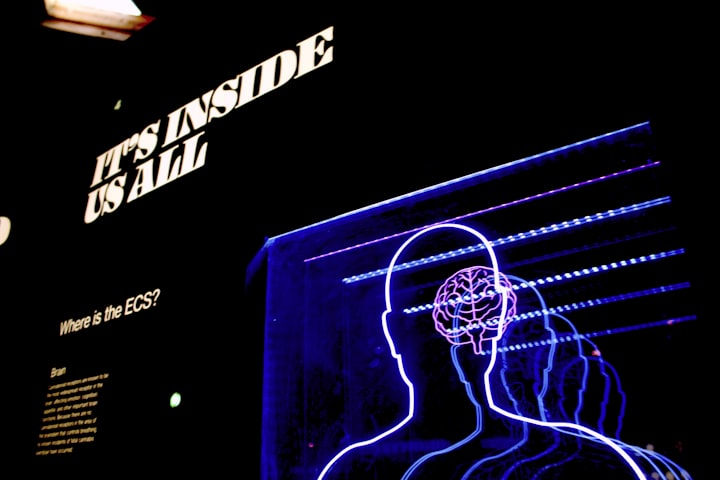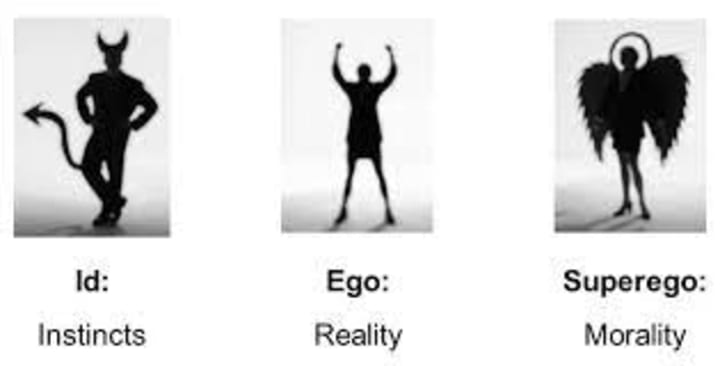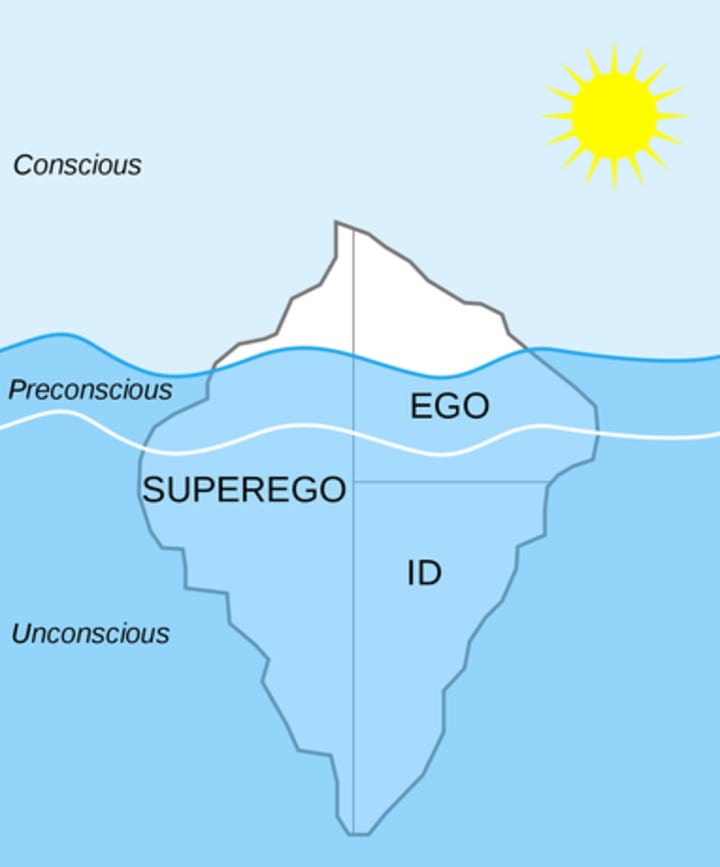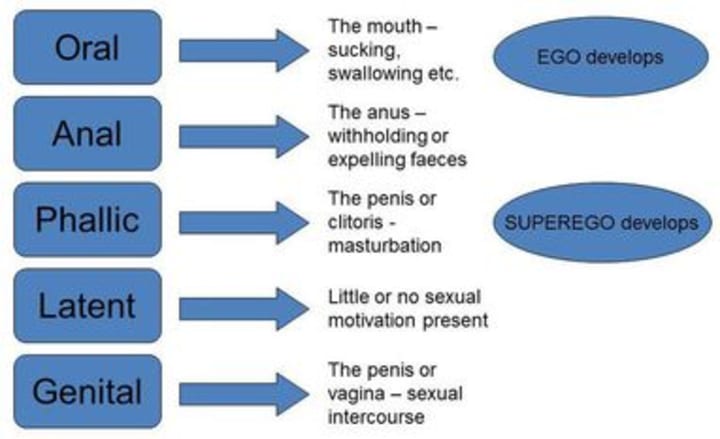SIGMUND FREUD
Who developed Psychoanalysis

Sigmund Freud was an Austrian neurologist and the founder of psychoanalysis, a clinical method for treating psychopathology through dialogue between a patient and a psychoanalyst.
Freud's theories and techniques have had a major impact on Western thought and have been highly controversial. His work has been influential in the field of psychology and psychiatry and continues to be so in the contemporary era.
One of Freud's key ideas was the concept of the unconscious mind. He believed that the human mind is divided into two parts: the conscious mind, which is aware of our thoughts, feelings and perceptions, and the unconscious mind, which contains thoughts, feelings and desires that we are not aware of. According to Freud, the unconscious mind is the source of many of our behaviours and emotions, and psychoanalysis aims to bring these unconscious thoughts and feelings to the surface so that they can be understood and resolved.
Another important concept in Freud's theory is the concept of the ego, the part of the mind that mediates between the desires of the id and the demands of the external world. The ego is responsible for maintaining a balance between these two conflicting forces and is constantly seeking to avoid the dangers of both the unconscious and the external world.
Freud also believed that human behaviour and emotions are shaped by childhood experiences and that our earliest experiences have a profound impact on our later development. He developed the concept of the psychosexual stages of development, which describe the way in which children progress through different stages of sexual and emotional development.
Lastly, Freud also developed the technique of free association, in which patients were encouraged to talk freely about whatever came to mind, without censorship or self-consciousness. This technique is still used today in the practice of psychoanalysis.
In conclusion, Sigmund Freud's theories and techniques have had a profound impact on the field of psychology and psychiatry, and continue to be widely debated and studied today. His ideas about the unconscious mind, the ego, and the importance of childhood experiences have been particularly influential, and his techniques, such as free association, are still widely used in the practice of psychoanalysis.
In Sigmund Freud's psychoanalytic theory, the id is one of the three main structures of the human psyche, along with the ego and the superego.

THE PSYCHE: ID
The id is considered to be the most primitive and instinctual part of the psyche and is thought to be responsible for our most basic impulses and desires.
According to Freud, the id is present at birth and operates on the pleasure principle, which means that it seeks immediate gratification of our needs and desires. It is the source of our instincts, such as hunger, thirst, and the need for sexual gratification. The id is also responsible for our aggressive impulses and the desire to exert power and control over others.
The id is considered to be the most primitive of the three structures of the psyche and is not subject to the constraints of reality or the demands of the external world. It is completely irrational and operates without any regard for the consequences of its actions.
The id is also considered to be the source of our unconscious mind. It contains all the thoughts, feelings, and desires that we are not aware of, and it is through the process of psychoanalysis that we can bring these unconscious thoughts and feelings to the surface so that they can be understood and resolved.
In conclusion, the id, according to Sigmund Freud, is the most primitive and instinctual part of the human psyche, responsible for our most basic impulses and desires. It operates on the pleasure principle, seeking immediate gratification and is not subject to the constraints of reality or the demands of the external world. It is considered to be the source of our unconscious mind and is brought to consciousness through the process of psychoanalysis.
THE PSYCHE: EGO
The ego is considered to be the rational and executive part of the psyche and is responsible for mediating between the impulses of the id and the demands of the external world.
The ego is said to operate on the reality principle, meaning that it seeks to gratify the impulses of the id in a way that is realistic and acceptable in the external world. It uses reason and logic to find ways to satisfy the desires of the id without causing harm to the individual or those around them. The ego also has the ability to delay gratification, for example, it may decide to save money for a purchase rather than spending all at once.
The ego is also responsible for our sense of self, and for our ability to perceive and interact with the external world. It is the part of the psyche that organizes our thoughts and experiences and gives us a sense of reality.
The ego is not only responsible for mediating between the impulses of the id and the external world, but it also mediates between the id and the superego, the part of the psyche that represents our moral and ethical values. The superego, through the conscience, exerts pressure on the ego to behave in a way that is consistent with our moral and ethical values.
In conclusion, according to Sigmund Freud, the ego is the rational and executive part of the psyche, responsible for mediating between the impulses of the id and the demands of the external world. It operates on the reality principle, using reason and logic to find ways to satisfy the desires of the id in a way that is realistic and acceptable. It also mediates between the id and the superego and is responsible for our sense of self and our ability to perceive and interact with the external world.
THE PSYCHE: SUPEREGO
The superego is considered to be the part of the psyche that represents our moral and ethical values, and it acts as a counterbalance to the impulses of the id.
The superego develops during childhood as a result of the internalization of societal and cultural values, particularly those related to morality and ethics, as well as the values and rules established by parents and other authority figures. It is responsible for our sense of right and wrong, and it exerts pressure on the ego to behave in a way that is consistent with our moral and ethical values.
The superego is divided into two parts: the conscience, which is responsible for guilt and shame when the ego acts in a way that is not consistent with our moral and ethical values, and the ego ideal, which represents the ideals and aspirations that we strive to live up to.
The superego can also exert a negative influence on the individual, if it is too harsh or unrealistic it can lead to feelings of guilt, shame, and low self-esteem. If it is too weak, it can lead to a lack of direction and purpose in life and a lack of a moral compass.
In conclusion, According to Sigmund Freud, the superego is the part of the psyche that represents our moral and ethical values. It develops during childhood as a result of the internalization of societal and cultural values and acts as a counterbalance to the impulses of the id. It is divided into two parts: the conscience and the ego ideal.
THE PSYCHE
Here is how Freud visualized the triplets:

The psychosexual stages:

According to Sigmund Freud, human behaviour and emotions are shaped by childhood experiences, and our earliest experiences have a profound impact on our later development. He developed the concept of the psychosexual stages of development, which describe the way in which children progress through different stages of sexual and emotional development.
The five psychosexual stages are:
The Oral Stage (birth to 1 year): During this stage, the primary source of pleasure is the mouth, and the child derives pleasure from activities such as sucking, biting, and swallowing. If the child's needs are not met during this stage, they may develop oral fixation and become overly dependent on oral pleasures in adulthood.
The Anal Stage (1 to 3 years): During this stage, the primary source of pleasure is the anus and the child derives pleasure from activities such as bowel movements. This stage is also when children begin to develop a sense of control and independence. If the child's needs are not met during this stage, they may develop an anal fixation and become overly obsessed with control and order in adulthood.
The Phallic Stage (3 to 6 years): During this stage, the primary source of pleasure is the genitals, and the child becomes aware of their own sexuality. This is also when the Oedipus complex (the child's desire for their parent of the opposite sex and a sense of rivalry with their parent of the same sex) occurs. If the child's needs are not met during this stage, they may develop a phallic fixation and become overly obsessed with their own sexual power in adulthood.
The Latency Stage (6 to puberty): During this stage, the child's sexual energy is repressed and they focus on developing social skills and friendships.
The Genital Stage (puberty onwards): During this stage, the child's sexual energy is reawakened and they develop a desire for sexual relationships with others.
It's important to note that these stages are not fixed and rigid, and not every individual will pass through every stage in the same way. Also, it's important to note that these stages are not a linear progression and one can revisit earlier stages in their life and can still be influenced by them.
In conclusion, Sigmund Freud's psychosexual stages of development is a theoretical model that describes the way in which children progress through different stages of sexual and emotional development. These stages are the oral, anal, phallic, latency and genital stages. It's important to note that these stages are not fixed and rigid, and not every individual will pass through every stage in the same way.
About the Creator
Nisha Suman
Look at the sky. We are not alone. The whole universe is friendly to us and conspires only to give the best to those who dream and work.
A. P. J. Abdul Kalam






Comments
There are no comments for this story
Be the first to respond and start the conversation.